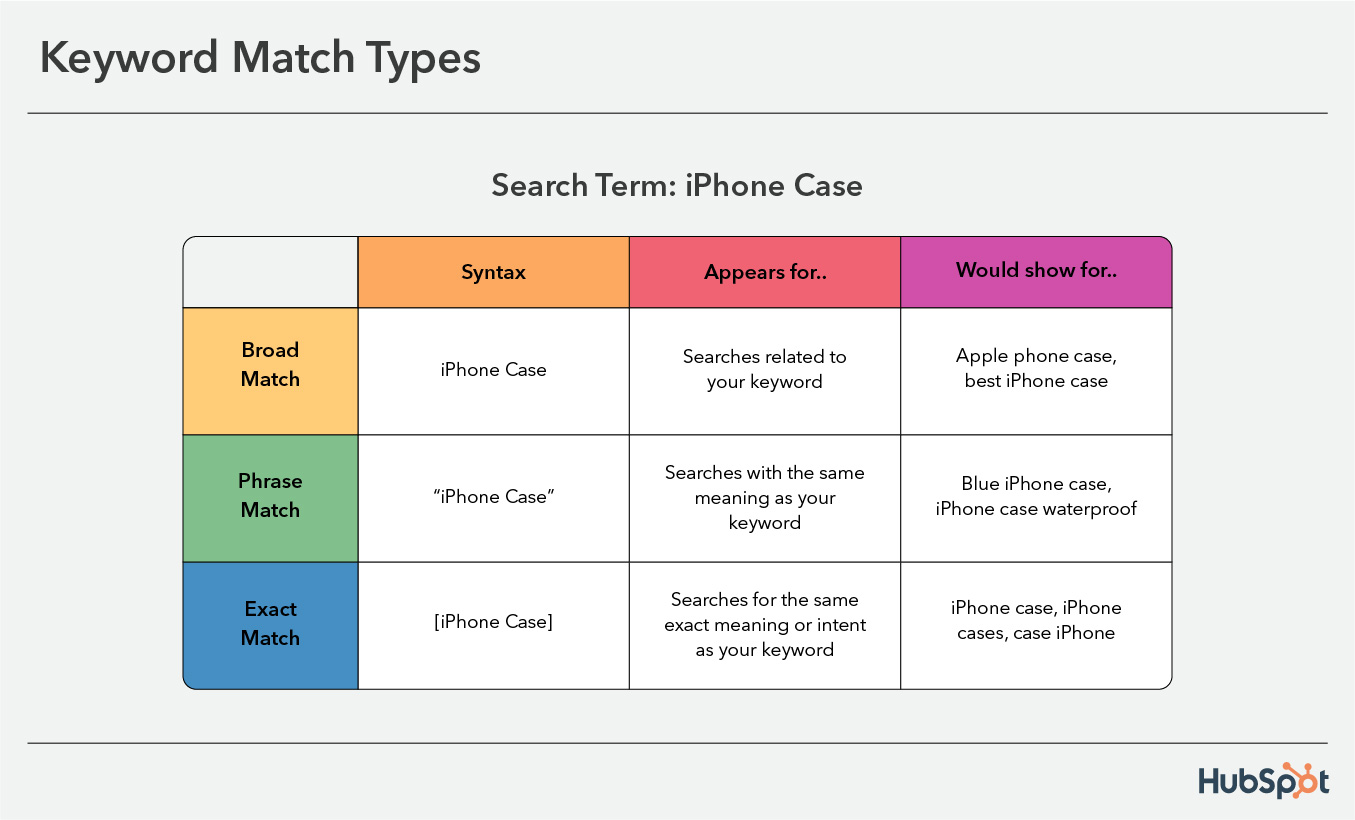Understanding the Basics of Video Search
With the vast amount of video content available online, effective video search has become an essential skill in today’s digital age. Whether you’re a student researching for a project, a marketer looking for product demos, or simply a user seeking entertainment, knowing how to search for video efficiently can save you time and effort. In this comprehensive guide, we will explore the fundamentals of video search, including the different types of video content, platforms, and search engines.
Video content comes in various forms, including movies, TV shows, music videos, product demos, tutorials, and vlogs. Each type of content has its unique characteristics, and understanding these differences is crucial for effective video search. For instance, searching for a specific movie title requires different techniques than searching for a product review.
There are numerous video search engines and platforms available, each with its strengths and weaknesses. Google, Bing, and Yahoo are popular search engines that index video content, while YouTube, Vimeo, and TikTok are dedicated video platforms with their own search capabilities. Understanding the features and limitations of each platform is essential for effective video search.
In addition to understanding video content and platforms, it’s also important to recognize the importance of effective video search in today’s digital age. With the rise of online learning, video has become a primary source of information and education. Moreover, video marketing has become a crucial aspect of business strategy, with companies using video to promote their products and services.
By mastering the basics of video search, you can unlock a wealth of information and entertainment, and stay ahead in today’s fast-paced digital landscape. In the following sections, we will delve deeper into the world of video search, exploring advanced techniques, tools, and strategies for finding the video content you need.
Choosing the Right Search Engine for Video
When it comes to searching for videos online, the choice of search engine can significantly impact the effectiveness of the search. With numerous search engines available, each with its strengths and weaknesses, it’s essential to understand the options and choose the best one for specific needs. In this section, we’ll explore the various search engines available for video search and provide tips on how to choose the right one.
Google is the most popular search engine for video search, and for good reason. Its vast index of web pages and advanced algorithms make it an ideal choice for finding videos. Google’s video search feature allows users to search for videos by keyword, and filter results by duration, resolution, and upload date. Additionally, Google’s video search results often include thumbnails, making it easier to preview videos before clicking on them.
Bing, on the other hand, offers a more visual search experience, with a focus on video thumbnails and previews. Bing’s video search feature also allows users to filter results by duration, resolution, and upload date, as well as by source, such as YouTube or Vimeo. While Bing’s video search index may not be as comprehensive as Google’s, it’s still a viable option for finding videos.
Yahoo is another search engine that offers video search capabilities, although its index is not as comprehensive as Google’s or Bing’s. However, Yahoo’s video search feature does allow users to filter results by duration, resolution, and upload date, making it a decent option for finding videos.
When choosing a search engine for video search, consider the following factors:
- Index size and comprehensiveness: Look for search engines with a large and comprehensive index of web pages, as this will increase the chances of finding relevant videos.
- Advanced search features: Consider search engines that offer advanced search features, such as filtering by duration, resolution, and upload date, as well as Boolean operators and quotes.
- Video preview and thumbnails: Choose search engines that offer video previews and thumbnails, as this will make it easier to preview videos before clicking on them.
- Source filtering: Consider search engines that allow users to filter results by source, such as YouTube or Vimeo, as this can help narrow down search results.
By considering these factors and choosing the right search engine for specific needs, users can improve the effectiveness of their video search and find the desired content more efficiently. Whether it’s Google, Bing, or Yahoo, the key is to understand the strengths and weaknesses of each search engine and use them to your advantage when searching for videos online.
Using Keywords and Phrases for Video Search
When it comes to searching for videos online, using the right keywords and phrases is crucial for getting relevant results. In this section, we’ll explore the importance of using relevant and specific keywords, and provide tips on how to use quotes, Boolean operators, and other advanced search techniques to improve video search results.
**Why Keywords Matter**
Keywords are the foundation of any successful video search. They help search engines understand what you’re looking for and provide relevant results. When searching for videos, it’s essential to use specific and relevant keywords that accurately describe the content you’re looking for. For example, if you’re searching for a video on “how to search for video,” using keywords like “video search,” “search engine,” and “online video” can help you get more relevant results.
**Using Quotes for Exact Phrases**
When searching for videos, using quotes can help you find exact phrases or titles. For example, if you’re searching for a video with the title “Mastering Video Search,” using quotes around the title can help you find the exact video you’re looking for. This technique is particularly useful when searching for specific video titles, lyrics, or quotes.
**Boolean Operators for Advanced Search**
Boolean operators are special characters that can help you refine your video search results. The most common Boolean operators are AND, OR, and NOT. For example, if you’re searching for videos on “video marketing” and want to exclude results that mention “YouTube,” you can use the Boolean operator NOT to exclude those results. Similarly, if you’re searching for videos on “video production” and want to include results that mention “filmmaking,” you can use the Boolean operator OR to include those results.
**Other Advanced Search Techniques**
In addition to using quotes and Boolean operators, there are several other advanced search techniques you can use to improve your video search results. For example, you can use the site operator to search for videos on a specific website or platform. For example, if you’re searching for videos on YouTube, you can use the site operator to search only within YouTube. Similarly, you can use the filetype operator to search for videos in a specific format, such as MP4 or AVI.
**Tips for Effective Keyword Search**
- Use specific and relevant keywords: Use keywords that accurately describe the content you’re looking for.
- Use quotes for exact phrases: Use quotes to find exact phrases or titles.
- Use Boolean operators for advanced search: Use Boolean operators to refine your search results.
- Use the site operator to search within a specific website or platform: Use the site operator to search only within a specific website or platform.
- Use the filetype operator to search for videos in a specific format: Use the filetype operator to search for videos in a specific format.
By using these techniques and tips, you can improve your video search results and find the content you’re looking for more efficiently. Remember to always use specific and relevant keywords, and don’t be afraid to experiment with different search techniques to get the best results.
Utilizing Video Search Filters and Tools
When searching for videos online, using filters and tools can help narrow down search results and find specific types of videos. In this section, we’ll explore the various filters and tools available on video search engines and provide tips on how to use them effectively.
**Duration Filter**
The duration filter allows users to search for videos based on their length. This filter is particularly useful when searching for short videos, such as movie trailers or music videos. For example, if you’re searching for a video on “how to search for video” and want to find videos that are less than 10 minutes long, you can use the duration filter to narrow down your search results.
**Resolution Filter**
The resolution filter allows users to search for videos based on their resolution. This filter is particularly useful when searching for high-quality videos, such as 4K or HD videos. For example, if you’re searching for a video on “video production” and want to find videos that are in 4K resolution, you can use the resolution filter to narrow down your search results.
**Upload Date Filter**
The upload date filter allows users to search for videos based on when they were uploaded. This filter is particularly useful when searching for recent videos or videos that are relevant to current events. For example, if you’re searching for a video on “current events” and want to find videos that were uploaded in the past week, you can use the upload date filter to narrow down your search results.
**Other Filters and Tools**
In addition to the duration, resolution, and upload date filters, there are several other filters and tools available on video search engines. For example, some search engines allow users to filter results by video type, such as music videos or movie trailers. Others allow users to filter results by video format, such as MP4 or AVI.
**Tips for Using Filters and Tools**
- Use the duration filter to find short videos: Use the duration filter to find videos that are less than 10 minutes long.
- Use the resolution filter to find high-quality videos: Use the resolution filter to find videos that are in 4K or HD resolution.
- Use the upload date filter to find recent videos: Use the upload date filter to find videos that were uploaded in the past week.
- Experiment with different filters and tools: Experiment with different filters and tools to find the ones that work best for your specific needs.
By using filters and tools effectively, users can narrow down search results and find specific types of videos. Whether you’re searching for short videos, high-quality videos, or recent videos, using filters and tools can help you find what you’re looking for more efficiently.
Searching for Videos on Specific Platforms
When searching for videos online, it’s essential to understand the unique features and search capabilities of each platform. In this section, we’ll explore the tips and tricks for searching for videos on popular platforms like YouTube, Vimeo, and TikTok.
**YouTube**
YouTube is the largest video-sharing platform in the world, with over 2 billion monthly active users. When searching for videos on YouTube, use specific keywords and phrases to get relevant results. You can also use the advanced search features, such as filtering by duration, resolution, and upload date. Additionally, YouTube’s auto-complete feature can help you find related keywords and phrases.
**Vimeo**
Vimeo is a popular video-sharing platform known for its high-quality videos and creative community. When searching for videos on Vimeo, use specific keywords and phrases, and take advantage of the platform’s advanced search features, such as filtering by duration, resolution, and upload date. Vimeo also allows users to search for videos by category, such as music, film, or animation.
**TikTok**
TikTok is a short-form video-sharing platform that has gained immense popularity in recent years. When searching for videos on TikTok, use hashtags and keywords to get relevant results. TikTok’s algorithm also takes into account user behavior, such as likes and comments, to provide personalized search results.
**Tips for Searching on Specific Platforms**
- Use specific keywords and phrases: Use specific keywords and phrases to get relevant results on each platform.
- Take advantage of advanced search features: Use advanced search features, such as filtering by duration, resolution, and upload date, to narrow down search results.
- Use hashtags on TikTok: Use hashtags on TikTok to get relevant results and take advantage of the platform’s algorithm.
- Experiment with different search techniques: Experiment with different search techniques, such as using quotes or Boolean operators, to find specific videos or information.
By understanding the unique features and search capabilities of each platform, users can effectively search for videos and find the desired content. Whether you’re searching for videos on YouTube, Vimeo, or TikTok, using the right techniques and strategies can help you get the best results.
Advanced Video Search Techniques
When searching for videos online, using advanced search techniques can help you find specific videos or information more efficiently. In this section, we’ll explore some advanced video search techniques, including site search, file type search, and reverse image search.
**Site Search**
Site search allows you to search for videos within a specific website or domain. This technique is particularly useful when searching for videos on a specific platform, such as YouTube or Vimeo. To use site search, simply type “site:” followed by the website’s URL and your search query. For example, “site:youtube.com how to search for video” will search for videos on YouTube that match the query “how to search for video”.
**File Type Search**
File type search allows you to search for videos by file type, such as MP4 or AVI. This technique is particularly useful when searching for videos in a specific format. To use file type search, simply type “filetype:” followed by the file type and your search query. For example, “filetype:mp4 how to search for video” will search for MP4 videos that match the query “how to search for video”.
**Reverse Image Search**
Reverse image search allows you to search for videos by uploading an image or using an image URL. This technique is particularly useful when searching for videos that contain a specific image or logo. To use reverse image search, simply upload an image or enter an image URL and your search query. For example, uploading an image of a logo and searching for “how to search for video” will search for videos that contain the logo and match the query “how to search for video”.
**Other Advanced Search Techniques**
In addition to site search, file type search, and reverse image search, there are several other advanced search techniques you can use to find specific videos or information. For example, you can use the “related:” operator to search for videos related to a specific video or website. You can also use the “info:” operator to search for information about a specific video or website.
**Tips for Using Advanced Search Techniques**
- Use site search to search within a specific website or domain: Use site search to search for videos within a specific website or domain.
- Use file type search to search for videos by file type: Use file type search to search for videos in a specific format.
- Use reverse image search to search for videos by image: Use reverse image search to search for videos that contain a specific image or logo.
- Experiment with different advanced search techniques: Experiment with different advanced search techniques to find the ones that work best for your specific needs.
By using advanced search techniques, you can find specific videos or information more efficiently and effectively. Whether you’re searching for videos on a specific platform or searching for videos by file type, using advanced search techniques can help you get the best results.
Common Challenges and Solutions in Video Search
When searching for videos online, users often face common challenges that can hinder their search experience. In this section, we’ll discuss some of the most common challenges faced while searching for videos and provide solutions and workarounds for these challenges.
**Finding Specific Clips**
One of the most common challenges faced while searching for videos is finding specific clips or scenes. This can be particularly challenging when searching for videos with long durations or complex content. To overcome this challenge, users can use advanced search techniques such as site search, file type search, and reverse image search. Additionally, users can use video search filters and tools, such as duration and resolution, to narrow down search results and find specific clips.
**Dealing with Copyright Issues**
Another common challenge faced while searching for videos is dealing with copyright issues. Many videos online are copyrighted, and users may not be aware of the copyright laws and regulations. To overcome this challenge, users can use copyright-free video search engines or websites that offer royalty-free videos. Additionally, users can use video search filters and tools, such as license and usage rights, to find videos that are available for use.
**Overcoming Language Barriers**
Language barriers can also be a challenge when searching for videos online. Many videos are available in different languages, and users may not be able to understand the content. To overcome this challenge, users can use video search engines that offer translation services or subtitles. Additionally, users can use video search filters and tools, such as language and subtitles, to find videos that are available in their preferred language.
**Solutions and Workarounds**
To overcome the common challenges faced while searching for videos, users can use a variety of solutions and workarounds. Some of these solutions include:
- Using advanced search techniques: Use advanced search techniques such as site search, file type search, and reverse image search to find specific clips or scenes.
- Using video search filters and tools: Use video search filters and tools, such as duration and resolution, to narrow down search results and find specific clips.
- Using copyright-free video search engines: Use copyright-free video search engines or websites that offer royalty-free videos to avoid copyright issues.
- Using translation services or subtitles: Use video search engines that offer translation services or subtitles to overcome language barriers.
By using these solutions and workarounds, users can overcome the common challenges faced while searching for videos and find the desired video content more efficiently.
Best Practices for Effective Video Search
Effective video search requires a combination of specific keywords, filters, and tools. In this section, we’ll summarize the best practices for effective video search and emphasize the importance of patience, persistence, and creativity in finding the desired video content.
**Using Specific Keywords**
Using specific keywords is crucial for effective video search. Keywords help search engines understand what you’re looking for and provide relevant results. When searching for videos, use relevant and specific keywords that accurately describe the content you’re looking for. For example, if you’re searching for a video on “how to search for video,” use keywords like “video search,” “search engine,” and “online video” to get relevant results.
**Using Filters and Tools**
Filters and tools are essential for narrowing down search results and finding specific types of videos. Use filters like duration, resolution, and upload date to find videos that match your specific needs. Additionally, use tools like site search, file type search, and reverse image search to find specific videos or information.
**Being Patient and Persistent**
Effective video search requires patience and persistence. Don’t be discouraged if you don’t find what you’re looking for immediately. Keep trying different keywords, filters, and tools until you find the desired video content.
**Being Creative**
Effective video search also requires creativity. Think outside the box and use different keywords, filters, and tools to find what you’re looking for. For example, if you’re searching for a video on a specific topic, try using related keywords or phrases to find relevant results.
**Best Practices for Effective Video Search**
- Use specific keywords: Use relevant and specific keywords that accurately describe the content you’re looking for.
- Use filters and tools: Use filters like duration, resolution, and upload date to find videos that match your specific needs.
- Be patient and persistent: Keep trying different keywords, filters, and tools until you find the desired video content.
- Be creative: Think outside the box and use different keywords, filters, and tools to find what you’re looking for.
By following these best practices, you can effectively search for videos and find the desired content. Remember to always use specific keywords, filters, and tools, and be patient, persistent, and creative in your search.








